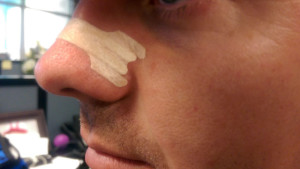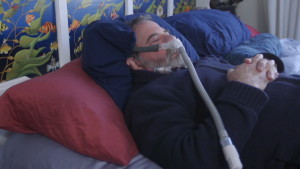Consumer Reports: ‘Nasal strips don’t always work’ to ease snoring
By Jodi Mohrmann – Managing Editor of special projects | May 01, 2017 | News4JAX.com
Simple changes to how you sleep, what you do before bed could help
JACKSONVILLE, Fla. – While some snoring can be a signal of a real medical issue, not all snoring is a sign of a potentially life threatening situation. But, we do know benign snoring can threaten your relationship if it’s keeping your partner from getting a good night’s sleep.
So what can you do to quiet snoring? First, you may be wondering about nasal strips — which stick on your nostrils to open them wider, allowing more air to pass through your nose. Since they’re inexpensive, News4Jax spoke to Consumer Reports to see if they may be worth buying.
“Nasal strips don’t always work,” said Consumer Reports Health Editor Diane Umanski. “Some research suggests that nasal strips may help reduce snoring in people without obstructive sleep apnea (OSA), but results have been mixed. According to UpToDate, which looks at and consolidates medical evidence to help doctors make recommendations to patients, it’s reasonable to try nasal strips if you don’t have OSA.”
 So, if the snoring is due to nasal issues like congestion, you can see if they work for you. But, Umanski says you can also try the following lifestyle strategies to help keep your airway open:
So, if the snoring is due to nasal issues like congestion, you can see if they work for you. But, Umanski says you can also try the following lifestyle strategies to help keep your airway open:
- Elevate your head and sleep on your side
- Avoid alcohol at least 4 hours before bed
- Quit smoking
- Lose weight
If these steps don’t work, Consumer Reports says it’s probably time to call a doctor who can test you for OSA.
OSA, marked by breathing stops and starts during sleep, occurs when something partly or completely blocks your airway. It affects 34 percent of men and 19 percent of women who snore regularly and can heighten the risk of cardiovascular disease, stroke, cardiac arrhythmia, and hypertension.
 While an oral appliance can help keep the airway open, your doctor might prescribe continuous positive airway pressure or C-PAP treatment which uses a machine to increase air into your throat.
While an oral appliance can help keep the airway open, your doctor might prescribe continuous positive airway pressure or C-PAP treatment which uses a machine to increase air into your throat.
If all else fails, surgery may be your only other option. Consumer Reports says ask your doctor about procedures which can open up the airway and help you stop snoring.





